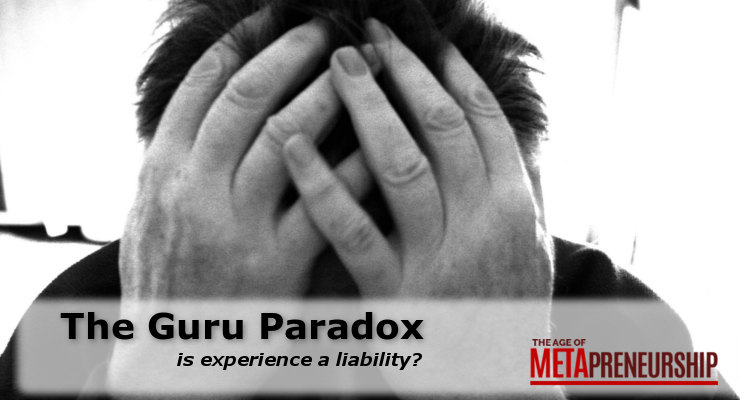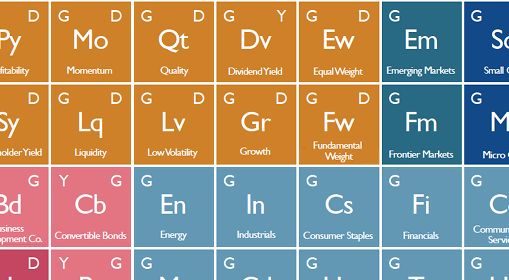New Book Redefines Modern Entrepreneurship
March 19, 2018The Cargo Cult of Entrepreneurship
March 20, 2018The Experience Slide
The Management Team. It’s the most important slide in the investor pitch deck. This is what all new entrepreneurs learn from the get-go. And it’s this slide that speaks volumes about the perception of “experience” in this modern era of entrepreneurship.
As investors and advisors to a statewide economic development program, each month we’d listen to pitches by dozens of promising startup ventures seeking funding. All across the country other investors and experts were having the identical experience. The startup ventures came in three groups: Mobile app or web companies started by enthusiastic 20-something year-olds; university research spin-offs headed by experienced professors; and deep industry solutions led by former executives.
Around slide 12, the 20-something founders will display a diverse team of classmates each with 3-4 years experience, followed by a handful of advisors who agreed to have their name associated with the company.
Even more predictable, were the ventures led by seasoned, former executives. They always started their pitches the management section. Before we even knew the name of the company, we were subjected to several bulleted slides detailing the CEO’s extensive credentials. This authoritative monologue often lasted 5 out of the allotted 15 minutes; only then would they reveal the product, market and customers.
If you were looking around the room, you might be surprised by the investors’ body language, but it turns out that our reactions to “the management slide” were pretty common.
At first we nodded in approval, then got bored and impatient. With each passing bullet point, and with each passing qualification, the credibility of the founder decreased. What were they overcompensating for? What were they hiding? Why were they delaying the rest of the presentation? Did they think that, by overwhelming us with their credentials, it will somehow guarantee that the product and market were viable? Gradually, their experience became a liability.
The Paradox of Experience
In times of rapid change, experience could be your worst enemy. – Jean Paul Getty
Once upon a time, your resume was a record of your achievements and credentials: showing how you have progressively accomplished more, and advanced upwards through some hierarchy. There’s a hard-to-escape logic that experience – especially when documented in the form of job titles and brand-name companies – is an asset.
Today, the culture is markedly different, particularly in entrepreneurial ecosystems: Showcasing your experience is akin to prominently displaying your high school trophies – worse if you have to explain their meaning. The further you are away from these achievements, the less they are a predictor of your future accomplishments.
Without noticing, we find ourselves operating in a new era . A modern age of hyperconnected, fast-paced, networked entrepreneurship: The Age of Metapreneurship. It is filled with unexpected chaos, and unexpected new rules, and paradoxes. And the experience-advantage gap might be the biggest paradox.
In the Age of Metapreneurship, experience and credentials have a very short half-life.
A New Logic
It’s a bitter pill to swallow. Experience can be a liability. The concept prompts prolonged bouts of cognitive dissonance and confusion in the smartest people. It’s like proclaiming: in the 100 yard dash, speed can slow you down.
It happens to all of us. Have you ever applied for a job, or been through interviews where you were the most experienced and qualified candidate? Yet, when you did not get a job offer, invariably a level of disappointment, bewilderment and depression begins that rivals the “5 stages of grief.”
It’s a modern bias that defies logic. Today, the common “wisdom” is:
- Past performance has no bearing on whether or not you will succeed in the future.
- Recent performance counts more than the number of years of experience.
- Job titles are valuable if they explain your skills, but a detriment if all they do is indicate your hierarchy within an organization.
And most important: in an entrepreneurial ecosystem, being on top of the hierarchy means you have separated from the crowd – and thus are disconnected from the community.
Think about it. Why aren’t the programmers with the most years of experience the highest paid, and the most-in demand? Why aren’t companies – particularly high tech companies – scrambling after older workers?
How often in business do we see experienced executives or veteran entrepreneurs struggle, flounder or fail when trying to launch their second act. By all logic they should be the gurus of our age.
The Guru Paradox
Guru. It used to mean: “influential or popular expert or teacher, or a master.”
Today, Guru is code for: “An older expert who would be very expensive to hire, but if we keep treating him nicely, we can get a lot of free knowledge from him.”
Being called a guru is often a modern scarlet letter, branding the expert as untouchable, while outwardly giving them respect and accolades. It’s a paradox. It’s a mirror image to “The Peter Principle”.
The Guru Paradox applies to someone who has risen high in the hierarchy, and whose achievements and credentials are so formidable that they would never fit into the network, the crowd, or the culture. The perception is that this person – who resides at the top of the hierarchy – could never thrive, instead, as part of a community or network.
Here’s the interesting dilemma: the more capable you seem, the less the crowd wants to help. The experienced have fewer peers. The more experienced you seem, the fewer people on the network are willing to help, and the less the crowd wants to engage. Why? Because the “experienced” don’t seem to need any help.
In this way, experience can be an albatross. And those who have earned power are becoming powerless.
The Guru Paradox happens with the hyper-accomplished: from executives and creatives, all the way to Oscar winning actors and actresses. The Guru Paradox transforms the maverick into a misfit.
Subtly, the guru is rendered ineffective and unemployable.
The New Power Equation
In the Age of Metapreneurship, your most valuable skillset is your ability to work within an network ecosystem, and contribute to the network – not the hierarchy.
In his book “The End of Power …” author Moises Naim describes – not an end of power – but a change in what defines power. He concludes:
Power no longer resides at the top of hierarchies, but at the center of networks.
So, how does the modern guru become central to the network? By continually providing value to the network. By becoming indispensable to the network.
This equation is an old one: provide value to get value. And it’s here that the experienced can thrive, because they do indeed have something to give to the network – their wisdom and knowledge they’ve acquired over the years.
It makes sense. People gravitate and flock towards those who they think will provide them with knowledge, connections and value. And in the Age of Metapreneurship, it’s the most important skillset – the ability be valuable at the center of a network, ecosystem or community. Not at the top of the hierarchy – but in the center.
For more on The Guru Paradox, and other issues of modern entrepreneurship, read The Age of Metapreneurship by CJ Cornell




